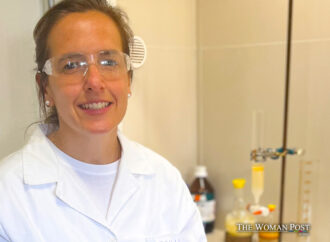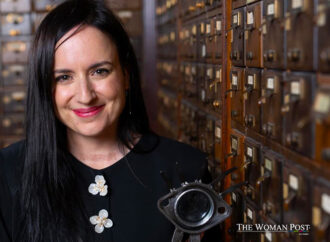Pregnancy generates endless emotions in the life of a woman, but it is also true that it implies a radical change for her body, and, if you are over 35 years old and hold the title of "pregnant at a mature age", the matter deserves that Let's dispel several myths and see what is real in your state
To speak to you with a scientific basis about what motherhood means at a mature age, we consulted the gynecologist, obstetrician, specialist in comprehensive ultrasound, and epidemiologist, Sonia Táriba Forero, with whom we cleared up several doubts. We share her interesting answers with you, dear reader.
Read more content like this at: thewomanpost.com
For many women, having a child is a plan that goes after other purposes such as studying, working out their profession, and achieving economic goals: Is it okay to wait a long time to conceive?
Having goals and fighting to achieve them is valid. What happens is that the woman who decides to postpone her pregnancy should know that the older the risks increase. All women at birth have a certain number of eggs that will remain in our body and once the first menstruation occurs we begin to release them to be fertilized. If this does not happen, we must understand that these eggs will remain there, being affected by the passage of time.
Do the risks to the health of the woman or malformations in the fetus increase if the pregnant woman is over 35 years of age?
It is necessary to clarify that, given the advances in technology applied to medicine, these risks have become less. The advice that I give these women is to consult a specialist before conception because the ideal is that they prepare themselves through ultrasound scans and the consumption of vitamins and minerals that prepare their bodies for pregnancy. And if there are previous conditions such as obesity or diabetes, prevention, and care must be greater.
Once the pregnancy is confirmed, the expectant mother should see a perinatologist and maintain frequent check-ups with the obstetrician-gynecologist to avoid adverse events.
Can fetal malformation be prevented?
Unfortunately not, we can prevent a diabetic coma or a hypertensive crisis in women that could cause the death of the fetus in the womb. The fetal malformation could be diagnosed early to avoid the advance of the pregnancy. However, the older the woman who wants to conceive, the greater the risk of fetal malformations. We could compare this case with a Russian roulette and, consequently, conception is the decision of the mature woman. I want to clarify that the intake of folic acid has been associated with the reduction of fetal neural tube defects, but it must be administered by a specialist.
Are abortions frequent when the pregnant woman is over 35 years of age?
Yes, and the main cause of abortions is of cardiac origin in the fetus. They can also occur due to a deficiency of the hormone progesterone in charge of maintaining the pregnancy during the first trimester.
What should be the lifestyle and eating habits of a woman who decides to assume maternity at a mature age?
If she smokes, she must stop before conception and, of course, during pregnancy. It is advisable to reduce the intake of saturated fats, avoid fried foods and drink alcohol. Consuming foods containing iron, folic acid, and calcium is ideal.
Is delivery at term determined by the age of the pregnant woman?
The pregnant woman’s age increases the risk of premature birth, that is, before 37 weeks of pregnancy, so that, in general, the baby will be born with less weight. It is very frequent – more than 50% of the cases confirm it – that babies are born by cesarean section and not vaginally. But if the pregnancy has been controlled, it could reach 40 weeks, this will be determined by the professional who assists the pregnant woman.
Are pregnancy and childbirth easier for a mature woman who has already had children when she was younger?
Knowing how previous pregnancies and deliveries developed will facilitate the specialist's work because we know the history of possible preeclampsia, for example.
Does the age of the father of the baby affect the development of the pregnancy?
No, because men produce sperm every 72 hours, unlike women whose unfertilized eggs are celebrating their birthdays.
Frequent fears
Dr. Sonia Táriba Forero explains that the fears expressed by mature pregnant women who come to her office include the frequency of vomiting and nausea, but they all agree in wanting to know if their babies do not have any malformations and if their development is progressing normally. Many, especially those over 40, share their anguish for feeling that they will not have the strength to face raising their children.
The specialist finally comments that "in most cases, these mothers are happy when they feel the movements of the baby in the womb and the fears dissipate”.

























Leave a Comment
Your email address will not be published. Required fields are marked with *